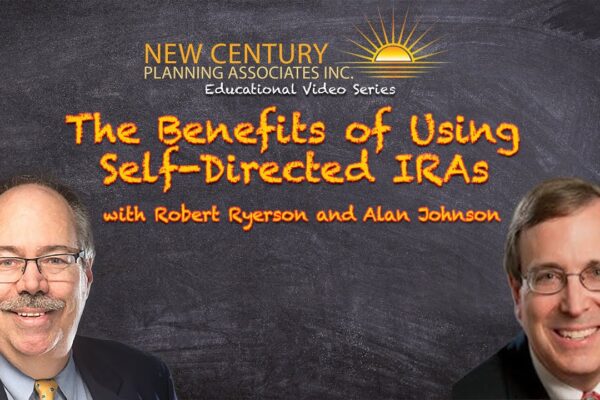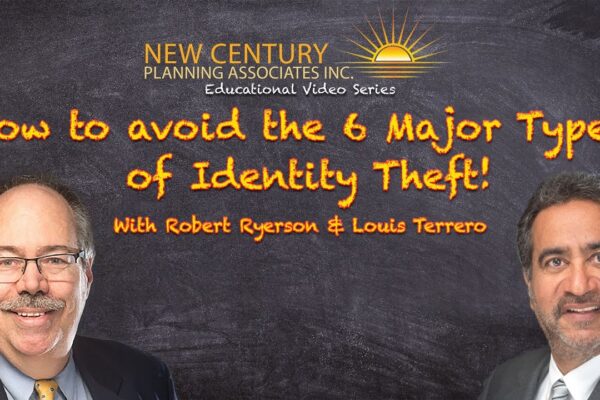Are Multiple Financial Advisors a Smart Idea? What You Need to Know
Working with a financial advisor to help you achieve your financial goals has become increasingly common. Where once people considered financial advisors and financial planning in general only appropriate for the very wealthy, now people from a broader range of income levels are interested in creating a comprehensive financial plan for themselves and using a professional to help them do so.
If you have one financial advisor, you might wonder whether that one is enough. Maybe you have considered multiple financial advisors to address multiple distinct financial needs. Maybe you’re wary about putting all your assets in one advisor’s hands and are wondering if multiple advisors might mitigate that risk. Whatever your motivation, if you’re considering hiring more than one financial advisor, here are a few pros and cons to think about.
 The Cost Factor
The Cost Factor
First and perhaps most importantly, you should think about the overall cost implications of employing more than one financial advisor. Financial advisors are instrumental in helping you achieve your overall long-term financial goals, helping you invest your money, reduce your tax burden, and save for your retirement. However, if you’re employing multiple financial advisors, it could be possible that the amount you are spending for their services outweighs the benefits they are providing. For example, you could end up paying more in fees and commissions if you split your money among several advisors, rather than investing one large amount with one advisor or firm. Calculate the combined cost of your financial advisors before deciding on that particular course of action, because the expenses could outweigh the benefits for your situation.
The Time Factor
Something else you might consider is the amount of time you’re likely to spend dealing with your different financial advisors. Multiple advisors can be a benefit, but you won’t see those benefits unless there is someone in a leadership role who has oversight of everything. In many cases, that role falls to you, meaning you have to spend a considerable amount of time managing all the advisors you are employing. Two advisors means twice the meetings, twice the phone calls, and so on. You’ll have to serve as a go-between as well.
 Alternatively, you could decide instead to designate one primary advisor and direct the rest of your financial advisors to report to that person before they make decisions. This can be a workable alternative to free up your time, since you can communicate your needs and goals with one primary individual, rather than having to spend a lot of time talking with each advisor individually. The key to effective use of multiple advisors is, of course, communication.
Alternatively, you could decide instead to designate one primary advisor and direct the rest of your financial advisors to report to that person before they make decisions. This can be a workable alternative to free up your time, since you can communicate your needs and goals with one primary individual, rather than having to spend a lot of time talking with each advisor individually. The key to effective use of multiple advisors is, of course, communication.
Consider a Specialist
If you already have a financial advisor helping you manage your goals, a second advisor could fill in the gaps in the other’s skills and expertise. For example, your primary financial advisor may manage your retirement savings, but may not have expertise in estate planning. In this case, engaging with a second financial advisor who specializes in estate planning could be an excellent idea. No matter your financial situation, multiple financial advisors are always most effective when they work in coordination and fill in each other’s knowledge gaps. When your financial advisors’ work overlaps, or when they aren’t coordinating, problems can arise.
The Cons and Caveats
In many situations, multiple financial advisors can be effective, in particular for high net worth individuals. With considerable means at your disposal, multiple financial advisors can mean multiple investment strategies that provide good portfolio diversification.
 However, for this strategy to be effective, you must ensure that your assets really are being diversified, and that your team is working in concert. In some cases, the overlap created with multiple financial advisors has the potential to put you at risk. If more than one advisor chooses to purchase the same assets, the result could be that you end up with too much exposure in one asset class.
However, for this strategy to be effective, you must ensure that your assets really are being diversified, and that your team is working in concert. In some cases, the overlap created with multiple financial advisors has the potential to put you at risk. If more than one advisor chooses to purchase the same assets, the result could be that you end up with too much exposure in one asset class.
That’s why all your advisors must be working under the same strategy, and each must know what the others are doing. Remember that none of them will be able to provide good advice if they do not have a comprehensive understanding of your finances. They need to be able to see the entire picture—your total income, liquidity, wealth, debt, and risk exposure—and not just the assets they’re managing. Advisors have a fiduciary duty to do what’s best for their clients, and they usually need to understand your whole picture to fulfill that.
For those individuals looking for a more diverse approach and reduced risk, but who are not comfortable with multiple financial advisors, the alternative is to look for an advisor or firm with experience in multiple financial specialties. In many cases, an advisory firm that utilizes this kind of team approach is a great solution. This way, you can get the benefits of multiple advisors with different specialty areas.
Consider Your Goals
Before deciding to use multiple financial advisors, consider the solution that will work best for your specific financial goals. You may be looking for an advisor specifically for your retirement or estate planning needs, or you might be looking for someone who can handle all your finances. Depending on your goals, multiple financial advisors could be beneficial. However, always be sure to weigh your options—including the financial and time expenses of having multiple advisors—before deciding to add more to your team.
Author
Robert Ryerson
Although Robert M. Ryerson completed all the necessary requirements to earn bachelor of arts degrees in both English and economics at Rutgers University, college policy at the time prohibited the issuance of dual degrees. As a result, he graduated from Rutgers with a single bachelor of arts in economics before finding employment as a stockbroker with Shearson Lehman American Express in New York City 1984. Robert M. Ryerson has since established himself as a respected estate administrator and legacy planner. In addition to his economics degree from Rutgers, Mr. Ryerson holds several professional designations including Retirement Income Certified Professional (RICP)®; Certified In Long Term Care (CLTC)®; Certified Financial Fiduciary (CFF)®, and Certified Identity Theft Risk Magenament Specialist (CITRMS)®. He has shared his knowledge on the subject of identity theft as the author of the book What’s The Deal With Identity Theft?: A Plain-English Look at Our Fastest Growing Crime. He has also covered identity theft issues directly for students as the instructor of the adult education course Understanding Identity Theft: Our Fastest Growing Crime.






